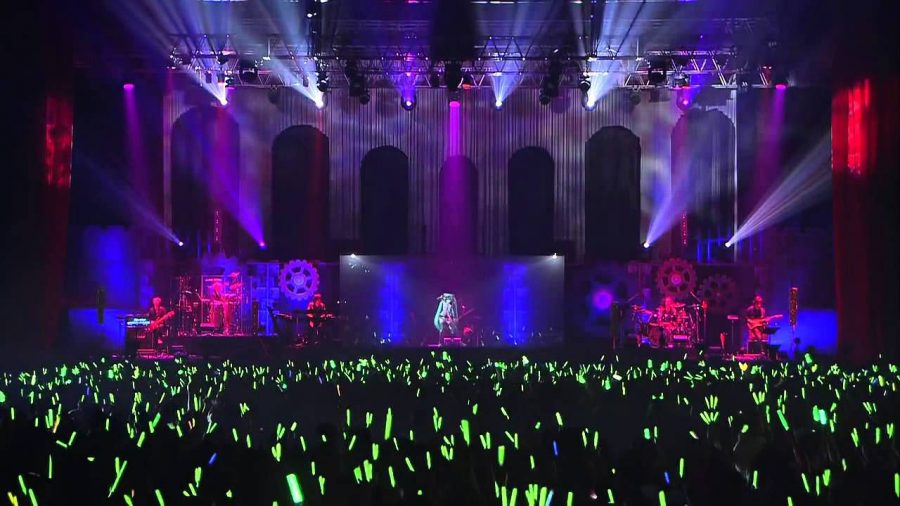AI artists on the rise
Presence of virtual characters in the entertainment industry increases
THE SURREAL UNREAL – Virtual performer Hatsune Miku holds a concert in New York City as a part of her international tour. Miku comes to life with 3D graphics and computer-generated voice
January 15, 2021
From the 14 performers that were selected to represent each country participating in the Asian-pacific Broadcasting Union (ABU), one contestant and the representative of Japan, Hatsune Miku, holds a unique character of her own. She is the only non-human contestant from the long list of participants, being a “vocaloid,” developed by Crypton Future Media, INC. in 2007.
Although the concept of Artificial Intelligence (AI) performers is still relatively new, Hatsune Miku serves as a success case in the industry. She has 1.3 million subscribers on YouTube, and several of her music videos have reached millions of views. Miku was also invited to perform at the 2020 Coachella festival, which had been canceled due to COVID-19, and collaborated with other artists like Madonna.
“Putting [virtual performers] on a screen and…see[ing] it in person, it’s the weirdest thing,” said orchestra teacher Starlet Smith, who was in the audience during Madonna’s 2014 tour, where Miku was the opening act. “I remember looking it up to see if it was a real human voice, and it’s not.”
The concept of AI performers and the creation of a “virtual” world in the entertainment industry could be unusual to many. However, along with the effect of COVID-19, this virtual space for performance and artwork is expanding at an unprecedented speed.
This change is also affecting human artists and the way they interact with their audience. With safety guidelines that prohibit people from coming together in large numbers, popular artists like Lil Nas X and Liam Gallagher are also holding virtual concerts.
“Even my students have been noticing [the presence of] virtual music… and [have been] doing it [themselves],” Smith said. “They put it together…[and it] can be watched by anyone at any time…accessed by so many more people.”
However, along with the increase in the presence of virtual performers in the entertainment industry, controversies regarding the origins of these artists are rising as well.
“I think it is good to try new things,” junior Jisoo Hwang said. “But [the concept] is a bit grotesque at the same time. Dehumanization of artists could be very easily done with this new concept of virtual artists.”
Although the lasting effects of of virtual characters in the industry are yet to be seen, it is undeniable that the development of virtual performers will influence the entertainment industry.
“The concept of hiding the performer….is not new,” Smith said. “But I do think all this crazy technology with computers is definitely…booming. That’s something that’s definitely not going to go away.”



